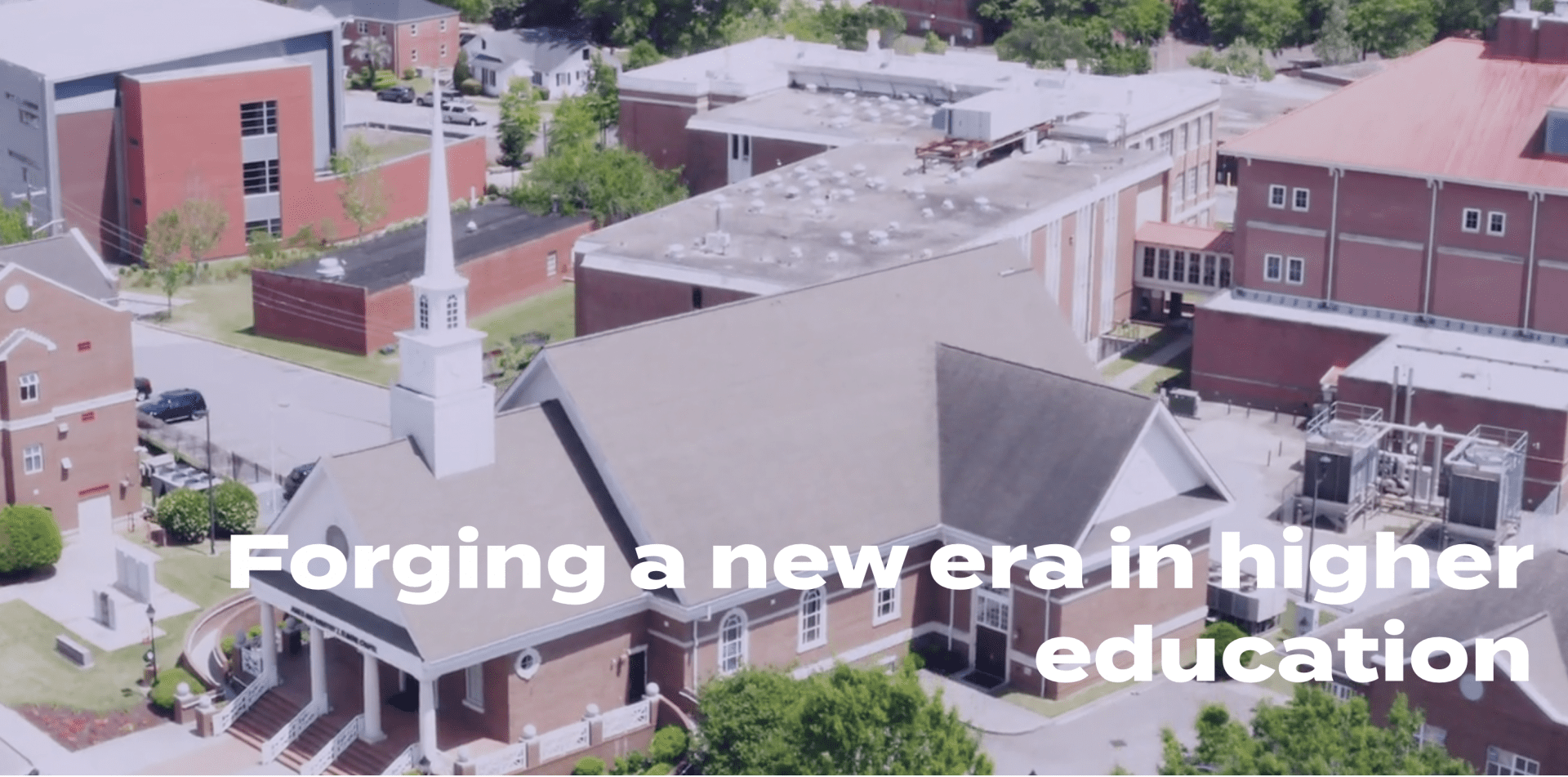INVEST
UNCF, Thurgood Marshall College Fund and Partnership for Education Advancement Announce Historic Collaboration to Improve Socioeconomic Outcomes for Black Communities

To assist with the efforts funded by Blue Meridian Partners, UNCF’s Institute for Capacity Building launched a new website to provide support to the HBCU Transformation Project effort.
Dubbed the HBCU Transformation Project, this first-of-its-kind collaboration aims to increase HBCU health and sustainability, improve student outcomes in retention and graduation rates, expand enrollment and increase capacity building with faculty and staff. Flexible support from the coalition focuses resources to highest priorities at each institution.
The overall initiative is structured around six interdependent sub-initiatives that work in service of supporting all HBCUs:
- Institutional improvement and innovation via TMCF, UNCF and the Partnership for Education Advancement
- Institutional and intermediary capacity building
- Increased public funding for HBCUs to rectify historic inequities
- Private capital campaign for endowments and sustainable reserves
- Community and regional economic development partnerships
- Reorienting the narratives surrounding HBCUs toward their outsized impact on social and economic mobility outcomes
Blue Meridian Partners, a pioneering philanthropic model for finding and funding scalable solutions to problems that limit economic and social mobility for America’s young people and families in poverty, committed an initial $60 million to support the HBCU Transformation Project.
Although they represent just 3% of all higher education institutions, HBCUs produce nearly 20% of all African American college graduates. HBCUs have produced more than 1 million associate, bachelor’s, master’s and doctoral degrees combined since 1984.
HBCUs produce 40% of all Black engineers, 40% of Black Congress members, 50% of all Black lawyers, 50% of all Black doctors, and 80% of Black judges. These professions are critical for closing the wealth gap between Black and White workers.
While HBCUs overproduce relative to their better-resourced counterparts, they have remained underfunded. Historical underfunding has led to a myriad of financial issues for HBCUs, particularly much smaller endowments relative to their peers.
“Our country has under-invested in HBCUs, which have a proven track record for unlocking student potential, driving socioeconomic mobility and serving as significant community assets,” said James Runcie, president, Partnership for Education Advancement.
Recent data from McKinsey & Company shows that investing in HBCUs would profoundly affect the U.S. economy and help fill the social and economic gaps Black Americans experience. HBCUs are uniquely positioned to foster such advancement given their assets, experience and cultural and historical significance.
“This collaboration offers a powerful opportunity to drive positive socioeconomic impact,” said Dr. Harry L. Williams, president and CEO, TMCF. “We are proud to partner on this unique, capacity-focused strategy that brings together HBCU institutional relationships and the capacity building experience of TMCF, UNCF and the Partnership for Education Advancement.”
“UNCF and Thurgood Marshall College Fund have worked together for many years, and this collaboration is a continuation of our efforts to amplify support for the needs of HBCUs and the students they serve,” said Dr. Michael L. Lomax, president and CEO, UNCF. “Blue Meridian Partners’ support is very important and will significantly enhance the HBCU innovation and transformation work that UNCF’s Institute for Capacity Building team has been pioneering for nearly two decades. This high-profile campaign will make the case to donors and to the government to elevate the profile of HBCUs and raise the support they deserve.”
“HBCUs have long overperformed as engines of opportunity,” added Jim Shelton, Blue Meridian Partners chief investment and innovation officer. “With this investment, we aim to significantly strengthen these institutions and student success at scale, contribute to closing racial gaps in access to opportunity and boost economic mobility and wealth-building among Black people and communities now and for generations to come.”
The initiative will be executed using a cohort model of select institutions. The inaugural participating HBCUs are:
| Alabama State University | Morehouse College |
| Benedict College | Norfolk State University |
| Claflin University | North Carolina Agricultural & Technical State University |
| Clark Atlanta University | South Carolina State University |
| Delaware State University | Spelman College |
| Dillard University | Talladega College |
| Florida A&M University | Tuskegee University |
| Hampton University | University of Maryland Eastern Shore |
| Huston-Tillotson University | Wiley College |
| Johnson C. Smith University | Winston-Salem State University |
